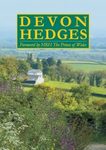Nature Writing
New
By: John Lewis-Stempel(Author), Micaela Alcaino(Illustrator)
447 pages, b/w illustrations, 1 b/w map
![England England]()
Click to have a closer look
About this book
Customer reviews
Biography
Related titles
About this book
Our countryside is iconic: a series of distinctive habitats that unite to create a landscape that is unique for the rich diversity of our flora and fauna. In England, his most magisterial book to date, John Lewis-Stempel explores each in turn, taking us from coast to moor, from downs to field, from the park to the village to create a vivid living portrait of our natural history.
In his trademark lyrical prose, Lewis-Stempel reveals the hidden workings of each habitat: the clear waters and dragonflies; the bluebells, badgers and stag beetles; wild thyme; granite cliffs; rock pools and sandy beaches; red deer standing at ancient oaks; the wayside flowers of the lane; hedgehogs and hares; and snow on the high peak. Each landscape – be it calm green or wild moor, plunging cliff or flatland fen – has shaped our idea of ourselves, our sense of what it is to be in England.
In a stunning package, complete with decorated boards, endpapers, chapterheads and a map, England: A Natural History is the definitive volume on the English landscape and the capstone of John Lewis-Stempel's nature writing.
Customer Reviews
Biography
John Lewis-Stempel is a farmer and 'Britain's finest living nature writer' (The Times). His books include the Sunday Times bestsellers Woodston, The Running Hare and The Wood. He is the only person to have won the Wainwright Prize for Nature Writing twice, with Meadowland and Where Poppies Blow. In 2016 he was named Magazine Columnist of the Year for his column in Country Life. He farms cattle, sheep, pigs and poultry. Traditionally.
Nature Writing
New
By: John Lewis-Stempel(Author), Micaela Alcaino(Illustrator)
447 pages, b/w illustrations, 1 b/w map
"In an age when it seems that nothing has been left unscathed by our bulldozing technological advances, John Lewis-Stempel offers a breath of fresh (and natural) air."
– The Times
"It is now expected of the modern nature writer to draw together landscape, wildlife, history and culture, but few – if any – do it as deftly as Lewis-Stempel does here [...] There is still a place for this kind of assured and expert countryside writing. Not just a place, but acres of room."
– Richard Smythe, Times Literary Supplement
"A richly enjoyable treasure trove for any nature lover. Gilbert White for the 21st century."
– Caroline Sanderson, The Bookseller, Editor’s Choice
"No-one comes close to Lewis-Stempel’s ability to paint the English landscape in words. Maddeningly brilliant."
– Sally Coulthard, author of A Brief History of the Countryside in 100 Objects
"Lewis-Stempel is the most splendid company as he stomps and meanders through England. He's congenial, lyrical, unsentimental and smart, with a rare eye both for the big picture and the tiny, telling detail. Marvellous!"
– Charles Foster, author of Cry of the Wild
"The book I've been waiting for, by my favourite contemporary nature writer. John Lewis-Stempel is that rarest of breeds, a writer on nature who is fully immersed in the natural world. England is a treasure from start to finish."
– Tristan Gooley
"No other writer comes close to Stempel’s mixture of down-to-earth practical observation, playful lyricism, and sheer delight in the endless variety of our English countryside."
– Christopher Somerville, author of Ships of Heaven and Walking the Bones of Britain
"With charm, patient observation and the gift of beautiful words, John Lewis-Stempel braids history, science and folklore, revealing how English habitats have been formed by the interplay of nature and the human hand. England is a loving call to experience afresh the worlds-within-worlds on our doorstep."
– [Prof.] Jonathan Drori [CBE] Author of Around the World in 80 Trees and Around the World in 80 Plants
"It is rare indeed to find a writer who combines deep knowledge with such acute sensitivity to the power of words. England reads like a masterclass in how to look and listen – and it’s a wonderfully uplifting evocation of the treasures to be had if we attend to those things."
– Edward Stourton, broadcaster and author of Confessions, Cruel Crossing and Auntie's War
"England draws you into its folds and flow, into the streams, estuaries, and woodlands it evokes, with an almost incantatory power. It’s a book about nature, but also about the art of noticing, writing, precision, and cadence — from an author at the absolute height of his powers."
– Sophy Roberts, author of Lost Pianos of Siberia































